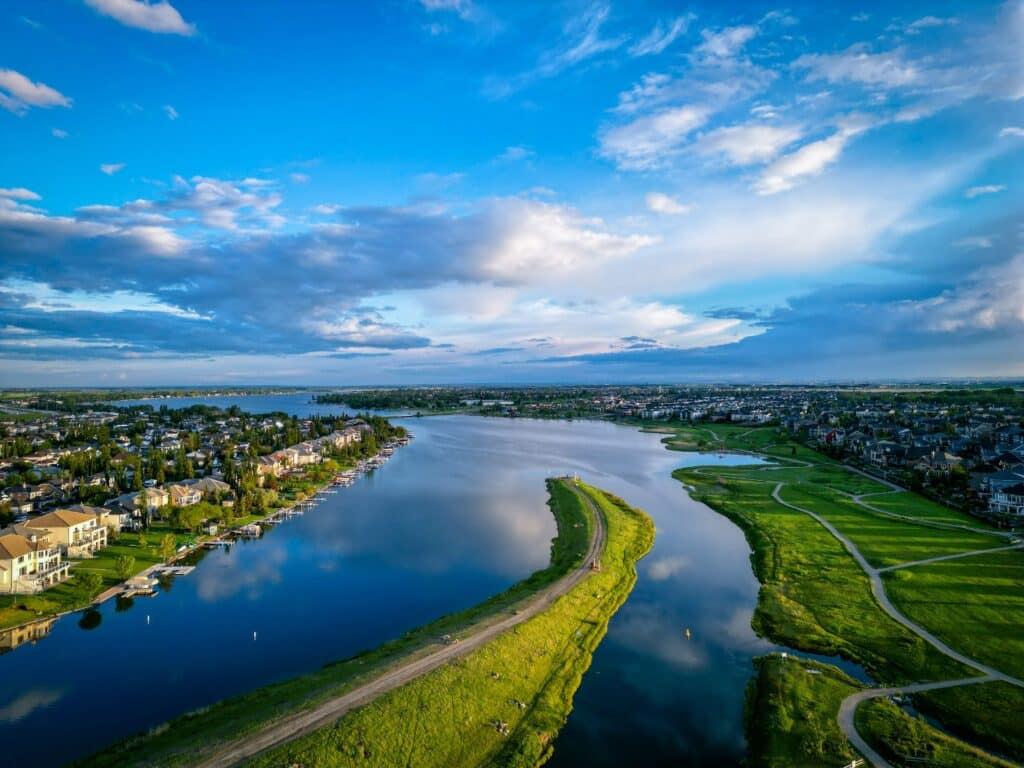Updated: January 23, 2026
Executive Summary
Canada’s Provincial Nomination Programs (PNPs) provide a reliable pathway to permanent residence for foreign entrepreneurs who are ready to invest in and manage a business in Canada. Through these programs, provinces and territories nominate business owners based on local economic needs, allowing applicants to obtain permanent residence once their business commitments are met.
Most entrepreneur PNP streams follow a structured process that includes submitting an Expression of Interest, receiving an invitation to apply, signing a Business Performance Agreement, and applying for a work permit. During a performance period—typically 12 to 20 months—entrepreneurs must actively operate their business, make the required investment, create jobs, and reside in the province. Successful applicants may then receive a provincial nomination and apply for permanent residence for themselves and their families.
Minimum investment requirements usually range from $100,000 to $200,000, with net worth thresholds between $300,000 and $600,000, depending on the province. Work permits are often issued within 6 to 8 months, and permanent residence can generally be achieved within 2 to 3 years. Together, these factors make PNPs an attractive long-term option for entrepreneurs and their families.
What are Canada’s Provincial Nomination Programs?
As the name suggests, Canada’s Provincial Nomination Programs give provinces and territories discretion to nominate immigrants based on local economic and labour needs. Through them, entrepreneurs can start or buy businesses and work towards permanent residence for themselves and their families. These programs feature over 10 different entrepreneur streams across the country and are ideal for someone who is ready to relocate and settle permanently in their province of choice.
Canada’s Provincial Nomination Program Overview
| Category | Details |
|---|---|
| Common Eligibility Criteria | - Education: Usually a post-secondary degree, diploma or certificate is required - Experience: 3-4 years of business owner or senior managerial experience is required - Language proficiency: CLB 4/5 - Investment: Minimum investment between $100,000 to $200,000 - Net Worth: Minimum net worth of $300,000 to $600,000 - Age: Some provinces have minimum and maximum age limits (21 - 59) - Relocation: Permanent settlement in selected province required |
| Benefits | - Permanent residence for entrepreneur and family - 2-year work permit while working towards permanent residence - Spouse eligible for open work permit - Children eligible for study permit - Access to healthcare and education - Investment only required after Business Performance Agreement is signed |
| Timelines | PR Milestone: 6 + months after receiving nomination Overall process: 2-3+ years |
| Common Milestones | 1)Expression of Interest (EOI) 2)Business Application and Business Performance Agreement 3)Work Permit and Performance Period 4)Request for Nomination 5)Permanent Residence Application Provinces may require or encourage completing an Exploratory Trip before submitting an Expression of Interest |
| Key Considerations | Business must remain operational in order to secure Provincial Nomination and permanent residence Entrepreneurs must live within 50-100km of their business and commit to spending 75% of their time managing business in person |
| Who Can Apply? | Experienced business owners or senior managers Must be willing and able to relocate to Canada to manage the day-to-day operations of their business |
| Approval Rate | Overall approval rate in our practice is 70% to 90% varying by province and applicant profile |

Canada’s Available Provincial Nomination Programs for Entrepreneurs
| Name of Alberta PNP | Details | Minimum Investment and Net Worth |
|---|---|---|
| Rural Entrepreneur Stream | This Stream is for entrepreneurs who want to start or buy an existing business in a rural Alberta community. Must have business ownership of senior managerial experience. | Investment: $100,000 Net Worth: $300,000 |
| Graduate Entrepreneur Stream | This Stream is for graduates from approved Alberta universities or colleges who want to start a business or buy an existing business. | No minimum investment or net worth requirement |
| Foreign Graduate Entrepreneur Stream | This Stream is for graduates with degrees from foreign universities or colleges who want to launch an innovative start-up business. | Investment: $50,000 - $100,000 Applicants must demonstrate settlement funds to support themselves and their family members |
| Farm Stream | This Stream is for experienced farmers who want to buy or start a farm in Alberta. Must have comparable farm ownership and management experience. | Investment: $500,000 Net Worth: $500,000 |
| Name of BC PNP | Details | Minimum Investment and Networth |
|---|---|---|
| Base Entrepreneur Stream | This Stream is for entrepreneurs who want to start or buy a business in British Columbia. Must have business ownership of senior managerial experience. | Investment: $200,000 Net Worth: $600,000 |
| Regional Entrepreneur Stream | This Stream is for entrepreneurs who want to start a business in a regional BC community outside of the Metro Vancouver Area. Must have business ownership of senior managerial experience. | Investment: $100,000 Net Worth: $300,000 |
| Strategic Projects Stream | This Stream is for established foreign companies looking to establish a base of operations in British Columbia. They may transfer key employees including the business founder. | Corporate Investment: $500,000 Annual Corporate Revenue: $20,000,000 |
| Name of NB PNP | Details | Minimum Investment and Net Worth |
|---|---|---|
| Business Immigration Stream | This Stream is for experienced business owners who are ready to establish, operate and actively manage a business in New Brunswick. | Investment: $150,000 Net Worth: $500,000 |
| Name of NS PNP | Details | Minimum Investment and Net Worth |
|---|---|---|
| Entrepreneur Stream | This Stream is for applicants who want to start or buy a business in Nova Scotia. Must have business ownership of senior managerial experience. | Investment: $100,000 - $150,000 Net Worth: $400,000 - $600,000 |
| International Graduate Entrepreneur | This Stream is for recent graduates from approved Nova Scotia universities or colleges who have already started or bought a local business and have operated it for at least one year. | No minimum investment or net worth requirement |
| Name of Manitoba PNP | Details | Minimum Investment and Net Worth |
|---|---|---|
| Entrepreneur Pathway | This Stream is for applicants seeking to start or buy a business in Manitoba. Must have business ownership of senior managerial experience. | Investment: $150,000 - $250,000 Net Worth: $500,000 |
| Farm Investor Pathway | This Stream is for experienced farmers who want to buy or start a farm in Manitoba. Must have comparable farm ownership and management experience. | Investment: $300,000 Net Worth: $500,000 |
| Name of Ontario PNP | Details | Minimum Investment and Net Worth |
|---|---|---|
| Entrepreneur Stream | This Stream is for applicants seeking to start or buy a business in Ontario. This stream is currently closed and set to re-open in 2026. | Investment: $200,000 - $600,000 Net Worth: $600,000 - $800,000 |
| Name of NL PNP | Details | Minimum Investment and Net Worth |
|---|---|---|
| International Entrepreneur | This Stream is for experienced business owners who are ready to establish, operate and actively manage a business in Newfoundland and Labrador. Must have business ownership of senior managerial experience. | Investment: $200,000 Net Worth: $600,000 |
| International Graduate Entrepreneur | This stream is for graduates of Memorial University or College of the North Atlantic who have started or bought a business in Newfoundland and Labrador. Must have actively managed their business for at least 1 full year. | No investment or net worth requirement |
| Name of PEI PNP | Details | Minimum Investment and Net Worth |
|---|---|---|
| Business Impact Stream | This Stream is for experienced business owners who are ready to establish, operate and actively manage a business in Prince Edward Island. Must have business ownership of senior managerial experience. | Investment: $150,000 Net Worth: $600,000 |
| Name of QC PNP | Details | Minimum Investment and Net Worth |
|---|---|---|
| Investor Program | This Stream is for applicants with management experienced who can invest $1.2 million in Quebec institutions. Must have a strong command of French. | Investment: $1,200,000 Net Worth: $2,000,000 |
| Entrepreneur Program | This Stream is for applicants who want to start, innovate or buy a business in Quebec. Must have a strong command of French. | Investment: 10-25% of the value of the business Business Purchase: $150,000 - $300,000 Net Worth: $600,000 |
| Employed Program | This Stream is for applicants who want to be self-employed in their profession in Quebec. Must have a strong command of French. | Investment: $25,000 - $50,000 Net Worth: $100,000 |
How do Canada’s PNP Milestones Work?
Unlike other immigration pathways, Canada’s Provincial Nomination Programs feature several milestones before permanent residence.

Milestone One: Finding Your Business
Most of Canada’s Provincial Nomination Programs allow entrepreneurs to start or buy their own businesses. This forms the basis for their application. What this means practically is that defining your business is the most critical step in the process. Successful entrepreneurs will complete thorough market research to prepare their business plan, complete with comprehensive financial and hiring plans. In many cases, provinces like Alberta will require applicants to complete an “Exploratory Trip”. This is a purposeful visit to their preferred city or town to research opportunities, understand the market, assess its suitability for business and personal goals, and meet with stakeholders and Economic Development Officers.
Helpful Tip: When searching for a business, start your search within the industries you have experience in. Not only do the provinces give weight to relevant experiences, but they can also improve the commercial viability and success of your business operations.
Milestone Two: Expression of Interest
Once you have defined and finalized your business plans, you must start by submitting a profile, called an “Expression of Interest”, to your province of choice. This profile will highlight to the province how you meet and exceed their minimum eligibility requirements, and provide them with a comprehensive overview of your planned business. This profile is entered into the province’s systems and assigned a score based on the province’s criteria and scoring cards. The provinces will maintain a pool of applicants and do periodic draws to select candidates to submit applications.
Milestone Three: Business Application
If you are selected in a provincial draw, the province will invite you to prepare and submit a formal application called a “Business Application”. You must include the following with your Business Application
- Proof of Identity
- Proof of business ownership or senior management experience
- Proof of education, with a formal Education Credential Assessment
- Approved language test results
- Net Worth verification report prepared by one of the province’s prescribed partners
- In some provinces, a formal business plan evaluation report
You will usually be granted between 90 and 120 days to complete and submit this application. Some provinces, like British Columbia, may invite you for an interview as part of their assessment once you have submitted your application.
Successful applicants will be invited to sign a contract, known as a “Business Performance Agreement,” with the province, outlining their commitments and timelines to secure their nomination from the province. Once you sign this Business Performance Agreement, the provinces will provide you with a letter of confirmation so you may apply for a work permit.
Helpful Tip: Avoid making your investments before the performance period begins, as most provinces will not count them. Provinces typically only count investments made during the performance period towards your investment commitment.
Milestone Four: Work Permit and Performance Period
Once you have signed the Business Performance Agreement, you will have 90 days to submit your work permit application to IRCC. IRCC will usually issue a 2-year work permit for you, an open work permit for your spouse, and study permits for your children.
Once you receive your work permit, your performance period will begin. This period is typically 12-20 months long. During this time:
- You must move to and live within 50 – 100km of your business
- Commit to spending 75% of your time managing your business in person
- Fulfill the terms of the performance agreement, including making the agreed upon investment in your business, and hiring Canadian citizens or permanent residents.
- Maintain the ongoing operations of your business and submit periodic progress reports to the province.
Helpful Tip: Plan to hire your employees within the first 6 months of your performance period. The provinces will look to see that you have a hiring history of at least 2-4 months to consider your hiring commitment met.
Milestone Five: Request for Nomination
At the end of your performance period, you will need to prepare and submit your Request for Nomination. This will include a final report on your business progress, including confirmation of ongoing business operations, corporate financial statements reviewed by a CPA, and your hiring records to ensure that your performance agreement has been executed. You will need the Nomination Certificate to apply for permanent residence as a Provincial Nominee.
Your nomination will come with a “Conditions of Nominations” declaration, outlining the conditions you have to maintain while you wait to receive your permanent residence.
Milestone Six: Permanent Residence Application
The last step in the process is to submit your permanent residence application once you’ve received your nomination. Your nomination will typically be valid for 6 months, during which you’ll be expected to submit your PR application. You can apply for permanent residence directly through the province’s systems.

Required Investments and Costs
Canada’s Provincial Nomination Programs each operate separately and have separate financial thresholds and costs. Generally, your financial planning should be focused on 4 categories:
| Category | Cost |
|---|---|
| Minimum Investment | $100,000 - $200,000 |
| Minimum Net Worth | $300,000 - $600,000 |
| Government Fees | $2,765 - $11,765 |
| Professional Fees | Starting at $20,000 |
Though provinces will set investment minimums, your expected investment will be based on the operational needs of your business and the investment needed to sustain it. For example, though Alberta’s minimum investment is $100,000, if your business requires $200,000, this will be the minimum you are expected to invest.
Helpful Tip: It is always good to have a $50,000 to $100,000 buffer for your investment. The success of your PR application will depend on meeting your commitments and the continued operation of your business. This means that if your business needs additional capital investment to remain operational, you need to be prepared to make or secure that investment.
Curious to know what your fees might be? Check out our fee calculator!
Canada’s Provincial Nomination Programs (PNP) vs. C11 Entrepreneur Work Permit
Entrepreneurs often ask whether a Provincial Nomination Program or a C11 Entrepreneur Work Permit is the better option. While both allow business owners to operate in Canada, they differ significantly in structure, requirements, and long-term outcomes.
| Factor | Provincial Nomination Programs (PNP - Entrepreneur) | C11 Entrepreneur Work Permit |
|---|---|---|
| Primary Purpose | Permanent reisdence-focused business immigration pathways | Temporary work permit based on significant benefit to Canada |
| End Goal | Permanent residence for applicant and family | Temporary status; no direct or guaranteed PR pathway |
| Initial Status Granted | Employer-specific entrepreneur work permit (after approval by province) | Employer-specific entrepreneur work permit |
| Pathway to PR | Built-in and structured once business commitments are met | Must transition later to another PR program (e.g., PNP, Express Entry) |
| Government Authority | Provincial government + IRCC | IRCC only |
| Application Structure | Multi-stage, milestone-based (EOI → Application → Performance Period → Nomination → PR) | Single-stage work permit application |
| Business Performance Requirements | Formal and monitored through a Business Performance Agreement | No formal performance agreement, but business viability is assessed |
| Investment Requirements | Typically $100,000–$200,000 minimum (varies by province) | No fixed minimum; investment must be reasonable for the business |
| Net Worth Requirements | Typically $300,000–$600,000 minimum | No formal net worth threshold |
| Processing Time to Work Permit | Approximately 6–8 months | Often 3–6 months, depending on case complexity |
| Timeline to PR | Typically 2–3 years | Indirect and uncertain; depends on future program eligibility |
| Residence Requirement | Must live in the nominating province and actively manage the business | No residence requirements, but must actively manage the business |
| Family | Spouse eligible for open work permit; children eligible for study permits | Same benefits generally available |
| Risk Profile | Higher upfront planning and documentation; clearer long-term outcome | Lower upfront thresholds; higher long-term uncertainty |
| Best Suited For | Entrepreneurs seeking a clear, structured PR pathway | Entrepreneurs seeking faster entry and flexibility, often as a first step |
Common Mistakes and Success Factors for Canada’s Provincial Nomination Programs
Canada’s Provincial Nomination Programs are well defined and straightforward, but there are critical factors to be aware of.
- Business Plans Matter: Your business plan will become the basis for your agreement with the province and cannot be changed once the agreement is signed. In this way, it is one of the most important documents you will need to provide. It’s important to keep your business plan grounded and achievable to set yourself up for success.
- Underestimating costs: The costs of doing business in Canada can be quite high and range significantly from city to city. Make sure you have a clear understanding of these costs before committing to a business plan, particularly for asset-heavy businesses.
- Document Collection: Canada’s Provincial Nomination Programs require significant documentary evidence, particularly when it comes to your net worth, liquid funds, and experience. As you assess your eligibility, make sure you are prepared to provide the documents to prove it. These documents can include:
- Employment records
- Business registration records
- Corporate and personal tax documents and audited financial statements
- Purchase records for any properties, including proof of payment or transfer
- Valuation reports for any of your properties
- At least 6 months of bank records
- Educational Credential Assessment
- Language Test Results
- Making advance payments: Most provinces will not consider any investments made before the Business Performance Agreement is signed. You should plan your investments with this in mind, particularly if you plan to buy a business.

Frequently Asked Questions About PNP in Canada
Are Canada’s Entrepreneur PNPs easy?
Canada’s Provincial Nominee Programs are reliable and structured pathways to permanent residence. While there are several steps involved, including a business performance agreement and active business operation, they are predictable and well-documented. In our experience, applicants who follow program guidelines closely and prepare thoroughly can expect a smooth process.
Do Canada’s Entrepreneur PNPs guarantee PR?
While no immigration program guarantees permanent residence, PNPs offer a clear and streamlined route. In our practice, we have seen approval rates over 90% when applicants fully meet their business commitments. Success depends on fulfilling your performance agreement and running your business as proposed.
Can I apply for the Entrepreneur PNPs from outside Canada?
Yes, entrepreneurs can apply for the Entrepreneur PNPs from outside Canada. Once your application is approved and the performance agreement is signed, you can apply for a work permit (such as a C60) to establish and run your business while working towards permanent residence.
What Kind of Business is Best for Canada’s Provincial Nomination Programs?
The best business is one that matches your experience and transferable skills. In our practice, we have seen successful PNP applicants run businesses ranging from convenience stores, cafes, and franchises like bubble tea or Jugo Juice, to niche sectors like construction or entertainment services. If you’re unsure what business suits your profile, we can help you assess your best-fit options.
Which one of Canada’s Provincial Nomination Programs is the Best?
The best Provincial Nominee Program (PNP) depends on your goals, background, and financial profile:
- Alberta is ideal if you have a lower net worth and want a streamlined process.
Check your eligibility with the Alberta PNP Calculator - British Columbia offers multiple entrepreneur streams and a strong business infrastructure near the U.S.
Explore your options with the BC PNP Calculator - New Brunswick provides one of the fastest nomination timelines for entrepreneurs.
Find out if you qualify for New Brunswick - Nova Scotia is a great option for lifestyle, liveability, and community-based business success.
If you’re not sure which province is right for you, our team can help you choose the best-fit province for your specific needs.
Which one of the Entrepreneur Provincial Nomination Programs is the Fastest?
New Brunswick offers one of the fastest entrepreneur-focused PNPs. With a six-month performance period and supportive provincial processes, you could receive your nomination in as little as 18 months after starting the process.
Use our New Brunswick PNP Calculator to check your eligibility and see if this expedited option is right for you.
How long does it take to get a nomination?
Timelines vary, but you can typically receive a work permit within 2–3 months of business application approval. Nomination may follow within 18–24 months, depending on your performance. Our clients often receive PR within 6–8 months after nomination.
Can I move provinces after receiving a provincial nomination?
No. You need to settle in and actively manage your business in the province that nominated you. While PR grants mobility, during the nomination and business period, you must reside in your province and spend at least 75% of your time there. It is important to carefully consider your provincial choice, evaluating economic opportunities and personal fit.
Can my family come to Canada with me?
Yes. Your spouse and children can join you. Spouses may receive an open work permit, and children can attend school with study permits.
Can I apply for Canada’s Provincial Nomination Programs if I already have a Business in Canada?
Yes. If your province supports entrepreneurs through PNPs, you may still qualify. In some cases, such as in New Brunswick or Manitoba, previous investments in the province may expedite your application. However, most programs expect a new business plan and reinvestment.
Do I have to be in Canada before I get my PR?
Yes. You need to remain physically present in the province and actively manage your business for at least 75% of your time during the performance period.
Is there an age limit for Canada’s PNPs?
Most PNPs do not have strict age limits but award higher points for applicants between 21 and 59. Some provinces have specific minimum or maximum age requirements. Reach out to us to see how your age impacts eligibility in your target province.
Tools and Resources for Canada’s Provincial Nomination Programs
These tools and official resources can help you assess eligibility, understand program requirements, and prepare the supporting documents you need.
Eligibility and Assessment Tools
- British Columbia Eligibility Calculator
- Alberta Eligibility Calculator
- New Brunswick Eligibility Calculator
- Fee Calculator
Official Government Resources
Supporting Document Resources
- Educational Credential Assessment (ECA) Organizations
- Designated agencies authorized to assess foreign education credentials for Canadian equivalency.
- Approved Language Testing Providers
- Information on accepted English and French language tests for business immigration programs.
These tools and resources provide a starting point for entrepreneurs exploring Provincial Nomination Programs and preparing for the application process.
About Sobirovs Law Firm
Sobirovs Law Firm focuses exclusively on Canadian business immigration. We are a team of Licensed Immigration Lawyers and Consultants helping entrepreneurs, investors, and business owners navigate provincial nominee programs and federal business immigration pathways. Our team combines legal expertise with practical business understanding to turn complex situations into successful outcomes.
Learn more at sobirovs.com















